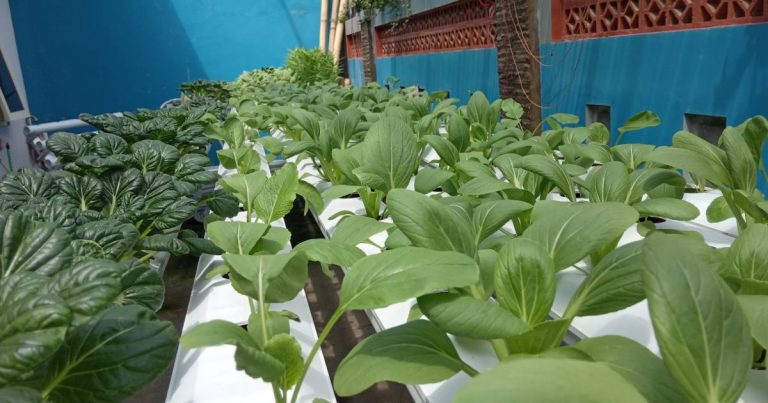11-8-2023 (JAKARTA) Indonesia is working closely with its private sector to ensure a well-functioning agricultural sector for the country, in the face of food security threats. With increased attention and awareness in recent years among consumers wanting to know where their produce is coming from, private firms are empowering farmers through sustainable solutions and helping to ensure food security.
Amid the global disruption to the food supply chain caused by Russia’s invasion of Ukraine last year, Indonesia has been actively seeking solutions to address potential food shortages. Farmers in the country are being encouraged to use sustainable methods to boost production, with private firms stepping in to offer support and guidance.
Beleaf Farms, an agritech firm, is one such private firm that has been helping Indonesian farmers to increase their yields and quality. The company started out as a hydroponic farm in 2019 and now offers a programme called “Farming as a Service” to help existing farmers. The programme includes input, crop management, and crop rotation with the assistance of Beleaf’s agronomists and supervisors. The company also provides offtake services, purchasing all of the farmers’ produce upon harvest.
Partner farmers of Beleaf Farms have praised the company for the support it has provided. Efrina Ginting, a small-scale Indonesian farmer, has been farming hydroponically with Beleaf Farms as a partner farmer for eight years. With Beleaf’s assistance, she has scaled up her production to nearly 1,000 sq m of space, spread over three greenhouses in two locations in West Java.
Muhammad Ifdhol Syawkoni, the hydroponic R&D manager at Beleaf Farms, emphasised the importance of research and development (R&D) in determining agricultural productivity and affecting food prices. Beleaf Farms conducts extensive research on even the smallest details, such as the number of holes in each hydroponic system.
Indonesian President Joko Widodo has called on companies to work with micro, small and medium-sized enterprises, including farmers, to boost their competitiveness. Arsjad Rasjid, chairman of the Indonesian Chamber Of Commerce and Industry, stressed that private companies have an important role to play in transferring knowledge and technology to farmers, expanding their access to financing, and assisting them in distributing their agricultural products.
By working with private firms, Indonesia is pursuing sustainable agriculture to ensure food security in the country. The government’s partnership with the private sector is expected to help the country achieve its goals of a well-functioning agricultural sector and increased competitiveness in the global market.




